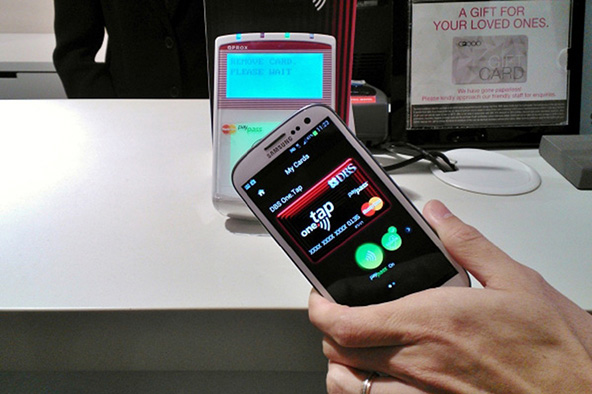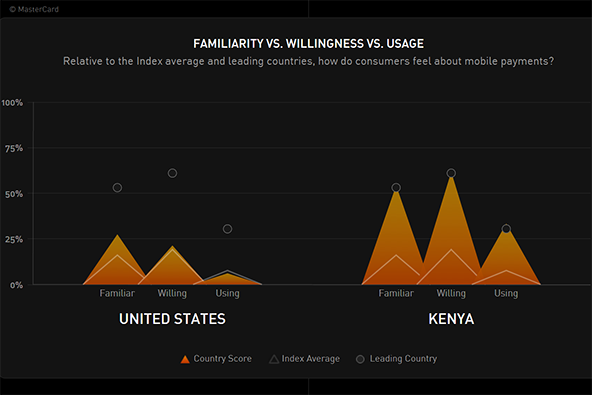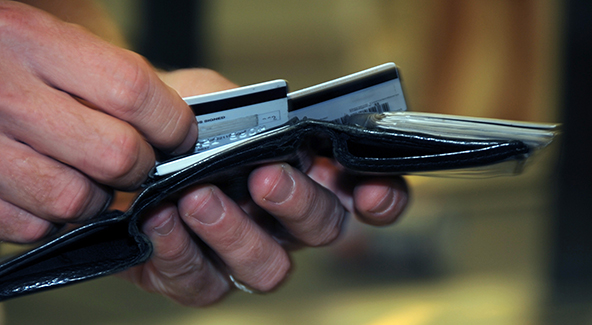Mobile Wallets, Credit Cards and Fraud Liability

WSJ’s Andrew R. Johnson briefs us on the latest efforts of federal regulators to establish just how well mobile wallet users are protected against fraudulent transactions. No less than three separate government departments and agencies — The Federal Reserve, Consumer Financial Protection Bureau and Treasury Department — have testified before the House Subcommittee on Financial Institutions and Consumer Credit, we learn. As Johnson notes, existing laws limiting consumer liability to fraudulent credit and debit card transactions would still apply in the mobile environment, while prepaid card protection would still be largely left to each individual issuer’s own discretion. It seems like everyone agrees on that.
Initially, I was tempted to dismiss the event as a perfect example of time wasting by government entities, but then it struck me that the hearing did provide a teachable moment. Or rather, two of them. Firstly, it underscored the fact that, rather than displacing credit cards, as many keep predicting, new mobile payments technologies would actually expand their reach. And secondly, it gave us an indication of what may lie in store for non-financial companies contemplating an entry into the lending business. Let’s take them one by one.
Credit Card Fraud Liability in the Mobile Payments World
Here is what Johnson tells us on this subject:
Existing laws, such as the Electronic Funds Transfer Act and Truth In Lending Act, limit consumers’ liability if they experience fraud on their debit and credit cards. Because some “mobile wallet” services available today allow customers to fund virtual accounts with existing cards, those rules would still apply if a user lost their phone, witnesses said.
A mobile wallet should be seen as nothing more than a digital version of its leather counterpart that we are still carrying around with us. If you lost your physical wallet and someone found it and then made purchases with the credit cards inside, you wouldn’t be held liable for them. The card issuer would bear the losses. The same would be true if you lost your phone and someone broke into the digital wallet inside it. So there is no need for new regulation here. Doing so would be the equivalent of devising new rules to regulate the extent of the leather wallet manufacturers’ liability for fraudulent transactions resulting from lost or stolen wallets.
Now, it is true that prepaid cards are not nearly as stringently regulated as credit and debit cards, but that again is an issue for the payment card industry and it has nothing to do with digital wallets or other mobile technologies. But what if a non-financial company, say a telecommunications provider, gets into the business of consumer lending. Well, that changes things quite a bit.
When Telecoms Become Banks
As it happens, we have been pondering the question of non-financial companies turning into lenders for quite some time. Here is what we wrote back in October 2010 when AT&T partnered with three mobile payments providers to expand its direct billing platform:
As mobile payments grow in volume, and provided consumers warm up to the direct billing option, they can potentially eat away into the credit card segment of the market. In effect, mobile phone accounts will act as charge cards – a type of credit cards that have to be paid in full at the end of each monthly cycle. That raises a number of questions about the status of mobile carriers that offer financial services and these may one day be looked into by the regulators.
What about the possibility of carriers allowing customers to roll over a portion of their monthly bill to the next month and charge interest on the balance? That would surely turn them into banks. What would regulators say about that? We know that Wal-Mart, the world’s biggest retailer, has been unsuccessfully trying to become a bank for years. Would carriers fare any better? Would they even want to go that route?
Well, we are beginning to get answers to all of these questions. As Johnson says:
While current laws governing the use of plastic credit and debit cards would cover consumers who lose their phones or incur fraudulent charges on their phone-based accounts, the involvement of nonbanking companies poses gaps in their ability to dispute charges and recoup losses, regulators testified Friday at a House subcommittee hearing.
And as we know, whenever regulators see a gap, they always try to fill it.
The Takeaway
So a mobile wallet transaction that is funded through a credit, debit or a prepaid card, or through a bank account, would be covered by the exact same protections that would apply to all other transactions involving these payment instruments. That much is quite clear. To the extent that there is any uncertainty, it involves lending by non-financial institutions, done primarily through direct billing, where the transaction amount is added to the user’s monthly phone bill. It is inevitable that this practice will be regulated and we can only hope that the regulators will do a good job at it.
Image credit: Mecacademy2012.wordpress.com.

